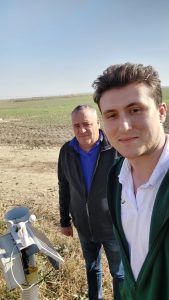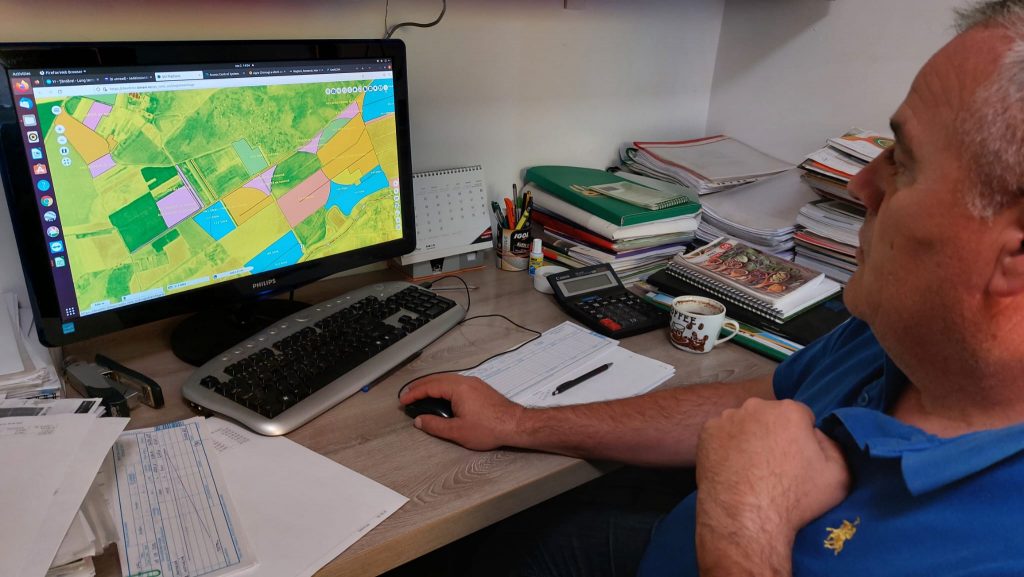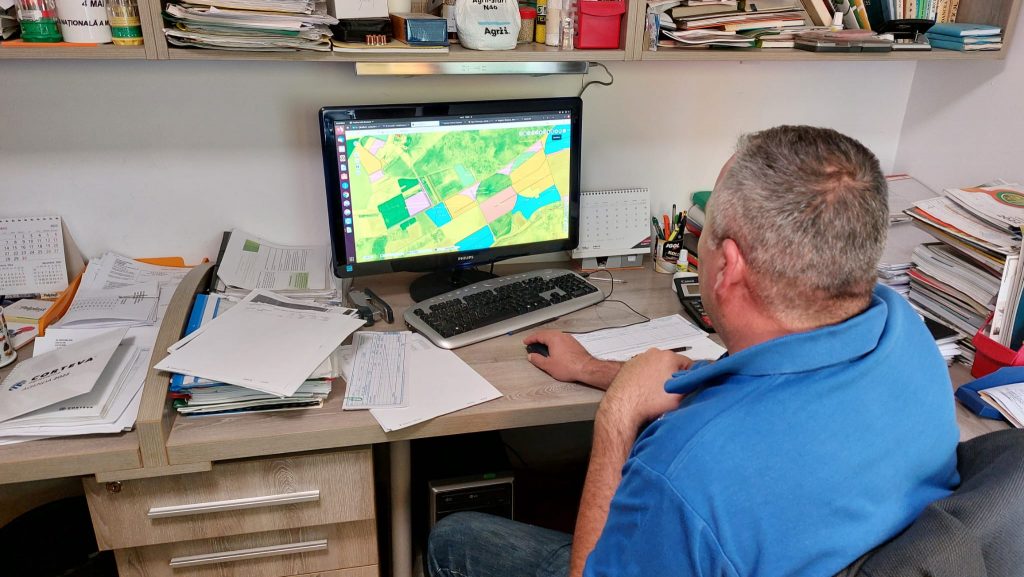
In this article, we talk to Ionel Nedelcu, an Agronomist at Sopema Farm in Ialomita County, Romania. Ion is participating in the DEMETER pilot ‘IoT Corn Decision Support System Platform‘. This pilot aims to improve water management, including water quality, save energy and reduce greenhouse gas emissions.

Ionel Nedelc of Sopema farm and Mihai Huciu, Technical Coordinator of the Romanian Maize Growers Association
Can you tell us a bit about yourself and your farm?
My name is Ionel Nedelcu and I have been a technician for Sopema Farm for more than 20 years. I am delighted to be participating in technology projects, particularly in digitalisation projects with DEMETER being just one that we are implementing in our farm. Our operation is located in one of the most fertile regions of Romania, where we cultivate roughly 4000 hectares of land (of which almost half is irrigated) with the main crops being maize, winter wheat and barley, soybeans, sunflower, oilseed rape.
Are you using any smart farming technologies?
Apart from the solution provided under the DEMETER project (weather stations and soil sensors), we are currently using GPS traffic control while sowing, spraying and performing soil tillage. We are also employing another farm management application assisting us in the preparation of all paperwork required for Pillar 1 subsidies (direct payments).
What data is being generated by these technologies?
The GPS traffic control tracks all field work that we perform and can detail maps of sowing, spraying and tillage uniformity.
The other application we are using provides us with real-time information for every land parcel in our operation, including the pesticide scheme treatment that we need to keep historical data of and documenting support for green payments and agri-environmental commitments.
How does this data help with your decision-making?

Data generated is used for parcel mapping, as the GPS helps us to have the same tracks in the field for all machinery and thus keep the soil compaction as low as possible. We are also able to apply variable seed and fertilizer rates, and spraying rates. Where technology matters the most on our farm is direct drilling. We use smart farming technologies in order to direct drill more than 600 hectares of our land.
Do you have any issues or challenges regarding the data?
At the moment we are not confronted with mentionable data issues.
Does data monetization interest you?
We have not really considered this opportunity yet even though we heard about. I think it is interesting and worth considering for the future, although Romanian farmers are not so well informed about this aspect of data.
Is benchmarking data important?
In our proximity, our farm has done pioneering work in digital technology adoption, and we are, generally, the ones who try new things to set examples and share best practice. This tells a lot about the importance of benchmarking our performance in a broader context. I believe the farmers who understand and make efforts to integrate the concept of precision agriculture will be sustainable in the future. There is no time to lose, but we must not skip steps. Precision agriculture perhaps can transform a good farmer into a very efficient one once they are ready to take the leap.
Is there anything else they would like to see in terms of the use of agricultural data?
We would like to have more accurate weather forecasts. I see a need for certain algorithms to be developed to help us foresee faster and more accurately the meteorological changes in order to adapt our farming practices. Even though we are using variable rates to some extent (in terms of seed, fertilizer and phyto-sanitary treatments), the current algorithm needs improvement. We want to see updates in every aspect related to variable input application, because financial performance and performance in environmental protection are the two keys to success in agriculture.



